Rep. Comer blasts 'unacceptable' actions of EcoHealth Alliance as it pertained to investigation of COVID origins
Rep. James Comer, R-Ky., alleges that there is 'no doubt that COVID-19 originated in the Wuhan lab,' and says the federal government continues to deny that there was any possibility that it originated there.
EcoHealth Alliance, a New York City-based nonprofit that works internationally to prevent emerging diseases, has been scrutinized by Republican politicians for its relationship with the Wuhan Institute of Virology in Wuhan, China, and research money in the years leading up to the COVID-19 outbreak.
EcoHealth is now back in the spotlight following a CBS News report stating they may have double billed for Wuhan projects through the National Institutes of Health (NIH) and the U.S. Agency for International Development (USAID).
"What I've found so far is evidence that points to double billing, potential theft of government funds. It is concerning, especially since it involves dangerous pathogens and risky research," Diane Cutler, a former federal investigator hired by Kansas Republican Sen. Roger Marshall, told the outlet.
Cutler said she discovered after reviewing thousands of documents that the federal government may have made duplicate disbursements for possible medical supplies, equipment, travel and salaries. Sources further told the publication, "tens of millions of dollars could be involved."
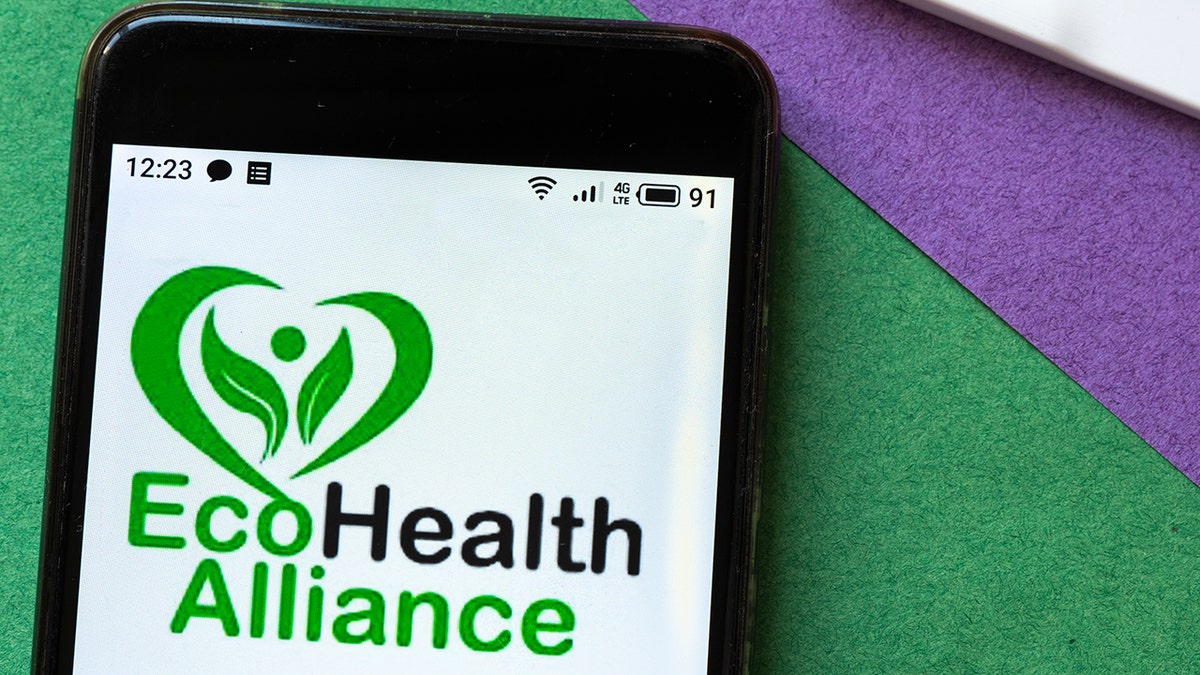
A new report alleges EcoHealth Alliance "double billed" the U.S. government for Wuhan-linked work, which the group denies. (Igor Golovniov/SOPA Images/LightRocket )
EcoHealth pointed Fox News Digital to a PDF version of a press release posted on their website following the report, which vehemently denies the allegations.
"CBS News was correct in noting that both USAID and NIH funded work in China via EcoHealth Alliance," the release states. "But the conclusions they drew were incorrect. The group says that NIH and USAID "supported two different projects that are complementary, but distinct, and do not involve duplication of effort."
EcoHealth also says the "story fails in the way it reports the science being conducted" and that an upcoming Government Accountability Office report will show "the total amount of grant funding from NIH and USAID to the Wuhan Institute of Virology for the projects in question from 2014 to 2021 amounted to less than $1.3 million."
The NIH has pushed grants to EcoHealth for bat-related research, including funding that made its way to the Wuhan Institute of Virology, or the "Wuhan lab." An NIH grant that began in 2014 ultimately pushed $3.7 million to EcoHealth and included more than $600,000 in sub-awards to the Wuhan Institute of Virology to study bat coronaviruses between 2015 and 2019, according to federal records.
USAID has also reported grants to EcoHealth, including nearly $2.5 million between 2013 and 2019 for "land use change & disease emergence," records show.
STATE DEPARTMENT LEADERS WERE WARNED NOT TO PURSUE COVID ORIGIN INVESTIGATION: FORMER OFFICIALS
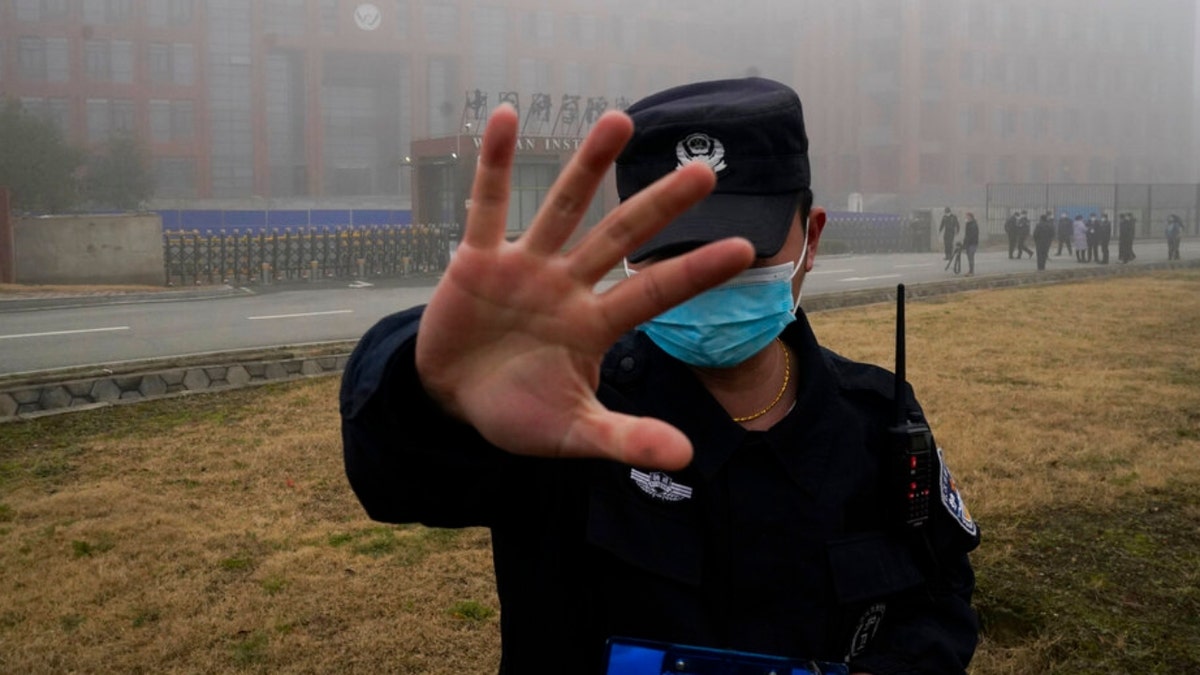
A security person moves journalists away from the Wuhan Institute of Virology. (AP Photo/Ng Han Guan, File)
A recent investigation found that NIH did not properly oversee EcoHealth and its federal research grants for its bat coronavirus research in China. In a January report, the Department of Health and Human Services inspector general said NIH "did not effectively monitor or take timely action" to ensure that EcoHealth complied with the terms of its grant awards and sub-awards.
EcoHealth, meanwhile, is propelled almost entirely by government money. Between July 1, 2013, and June 30, 2020, $78 million of the $87.5 million in contributions and grants EcoHealth received - or nearly 90% - came from government sources, according to a Fox News Digital review of its tax forms.
EcoHealth did not address Fox News Digital's questions on the sub-awards that made their way to the Wuhan Institute of Virology and its money primarily originating from government sources.
EcoHealth originated from a merger of the Wildlife Trust and the Consortium for Conservation Medicine. The group identifies its mission as integrating "innovative science-based solutions and partnerships that increase capacity to achieve two interrelated goals: protecting global health by preventing the outbreak of emerging diseases and safeguarding ecosystems by promoting conservation," according to its financial audit.
The nonprofit counts several corporate and academic partners, including Johnson & Johnson and East China Normal University, a Shanghai-based public university under the auspices of the Chinese Communist Party-controlled Ministry of Education.
FAUCI PRAISES 'COMPETENT, TRUSTWORTHY' CHINESE SCIENTISTS
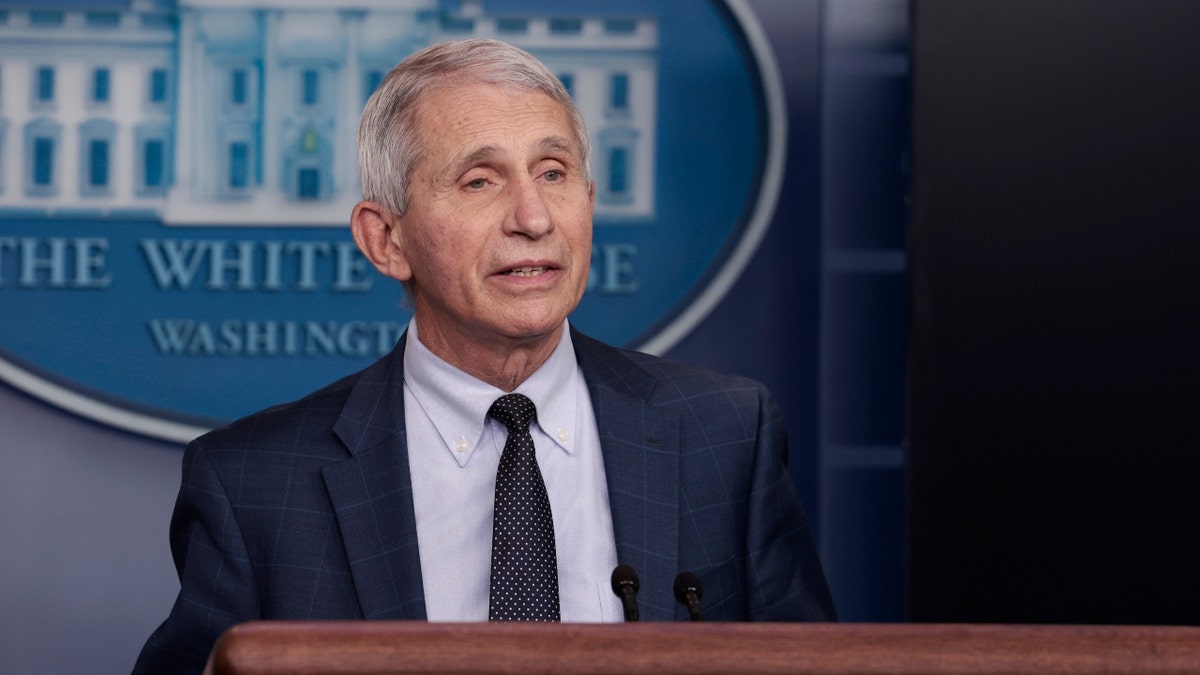
Peter Daszak, EcoHealth's president, in 2020 thanked Anthony Fauci for his Wuhan lab messaging. (Anna Moneymaker/Getty Images)
The group also partners with United States government agencies, including NIH, the Centers for Disease Control and Prevention, the New York City Department of Health, and the New York State Department of Environmental Conservation, its website states. They also list Malaysia's Ministry of Health and Department of Veterinary Services as partners.
During the onset of the pandemic, Arkansas Republican Sen. Tom Cotton raised questions about the Wuhan Institute of Virology, which ignited condemnation from Democrats and many media outlets, who chalked them up as "fringe conspiracy theories." Then-President Trump also consistently questioned whether the virus had leaked from the lab, igniting media and political figures to paint the lab leak as a fringe theory.
Weeks ago, an Energy Department assessment found that COVID-19 "likely" originated from a lab leak, and Federal Bureau of Investigation chief Christopher Wray said during a Fox News interview that the "FBI has for quite some time now assessed that the origins of the pandemic are most likely a potential lab incident in Wuhan."
Peter Daszak, EcoHealth's president, has maintained that the COVID-19 outbreak emerged naturally and did not originate as an accidental leak from the Wuhan Institute of Virology. In 2020, he even privately thanked former National Institute of Allergy and Infectious Diseases Director Anthony Fauci for his public Wuhan lab messaging.
"I just wanted to say a personal thank you on behalf of our staff and collaborators, for publicly standing up and stating that the scientific evidence supports a natural origin for COVID-19 from a bat-to-human spillover, not a lab release from the Wuhan Institute of Virology," Daszak wrote to Fauci in April 2020, according to previously uncovered emails.
"From my perspective, your comments are brave, and coming from your trusted voice, will help dispel the myths being spun around the virus's origins," Daszak said.
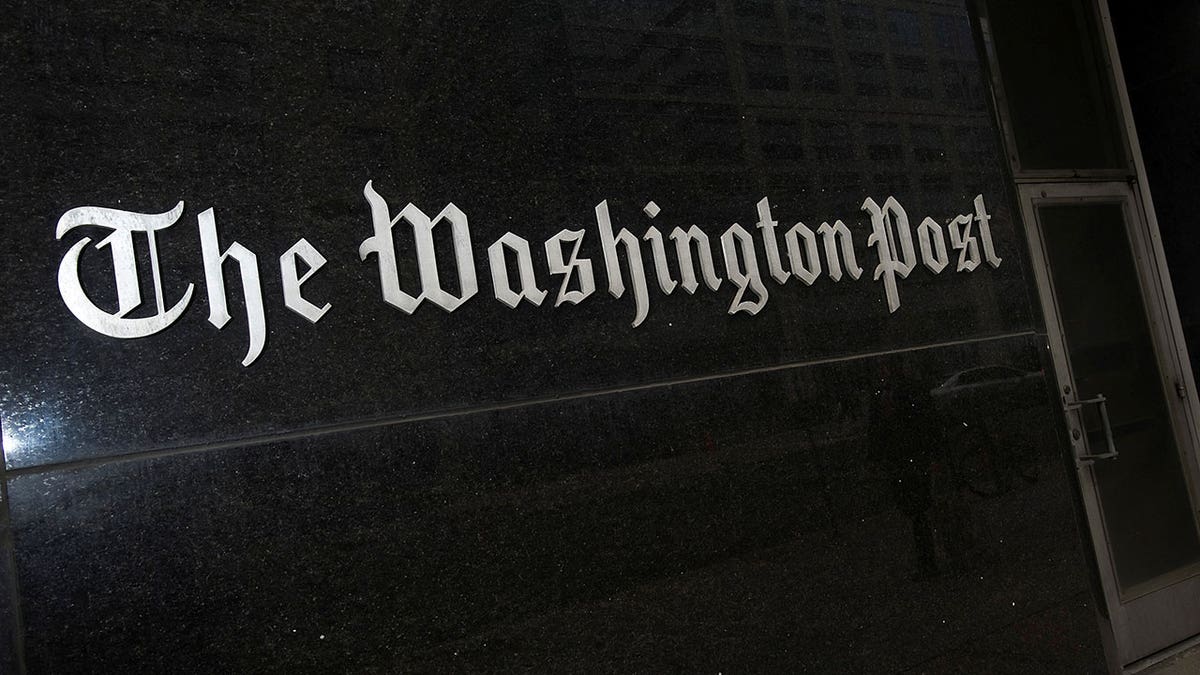
The Washington Post was among the media outlets to use EcoHealth's president in attempts to squash theories that COVID-19 originated from a lab leak. (Reuters/Jonathan Ernst/File Photo)
And in the press's broad dismissal of the "lab leak" theory, major fact-checkers often included Daszak in attempts to squash it.
The British scientist appeared in a Washington Post fact-check video published in May 2020, where he discussed his work with the Wuhan Institute researching viruses in bats that could cause "the next pandemic." The video outlined circumstantial evidence around the leak, such as its proximity to the outbreak, its work with coronaviruses, and its known security concerns, but still concluded it likely didn't happen.
After the narrator repeated the lab's denial that it was the source of the virus, Daszak said, "China's been incredibly open, and I believe it's because it's been a scientific collaboration."
At the time, The Washington Post's Glenn Kessler taunted Texas Republican Sen. Ted Cruz after he had criticized the Post's video, saying it showed it was "virtually impossible" the virus jumped from a lab. A little over a year later, Kessler published a timeline about how the lab-leak theory "suddenly" became credible.
Facebook fact-checking partner Science Feedback cited Daszak in a February 2020 post headlined, "Scientific evidence indicates virus that causes COVID-19 infection is of natural origin, not the result of human engineering." Daszak also penned a June 2020 Guardian op-ed assailing "conspiracy theorists" for blaming a lab leak.
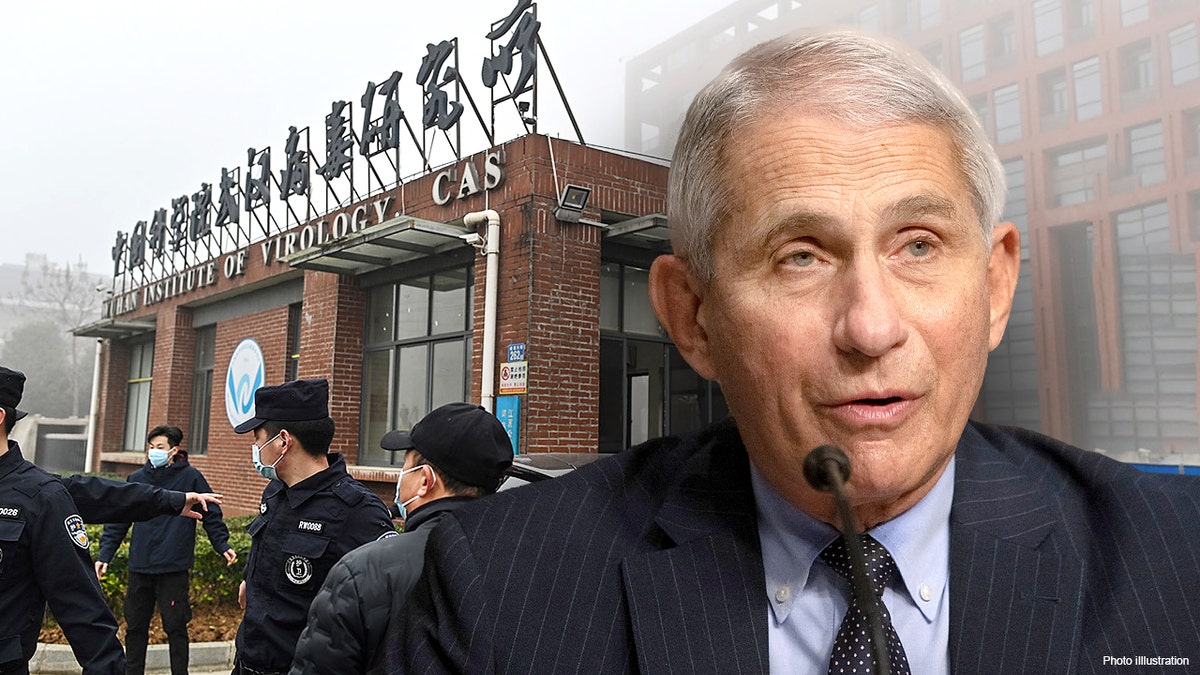
Dr. Anthony Fauci was quick to dismiss lab leak theories during his tenure National Institute of Allergy and Infectious Diseases director. (Hector Retamal/AFP via Getty Images)
CLICK HERE TO GET THE FOX NEWS APP
An April 2020 CNN article headlined, "How did coronavirus break out? Theories abound as researchers race to solve genetic detective story," also cited Daszak, who said he was "very confident" that the virus originated naturally. An NBC News story about "conspiracy theories" involving the lab also quoted the British scientist.
"The fact that they published the sequence so quickly suggests to me that they weren't trying to cover up anything," he told NBC News.
Additionally, a Chinese state media outlet cited him saying there was "absolutely no evidence" for the lab theory.
Fox News Digital's Chris Pandolfo and David Rutz contributed reporting.














































